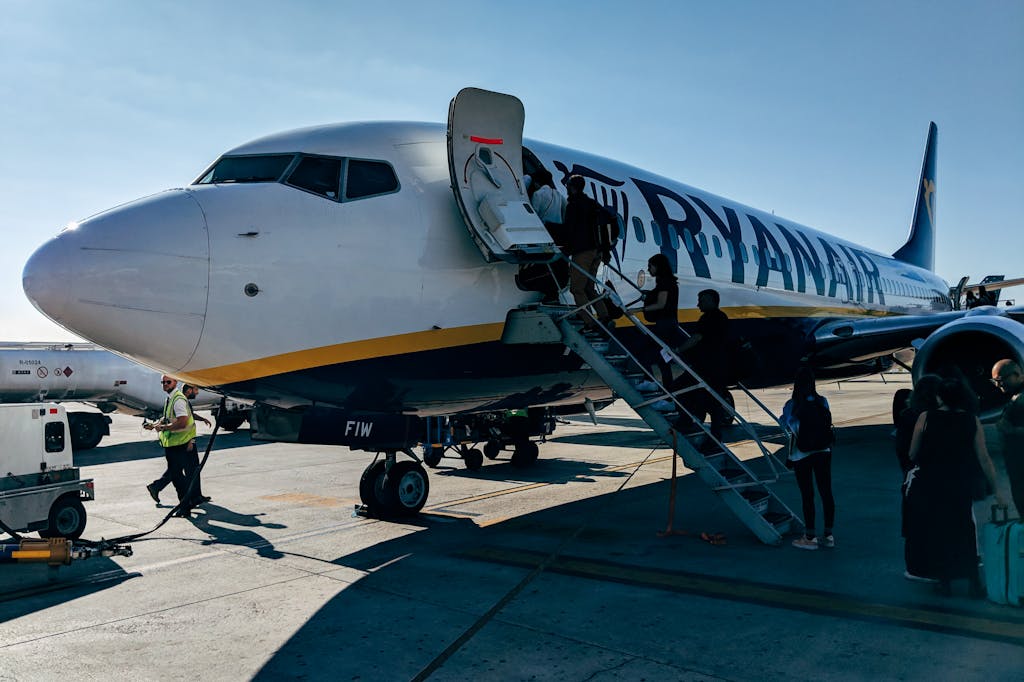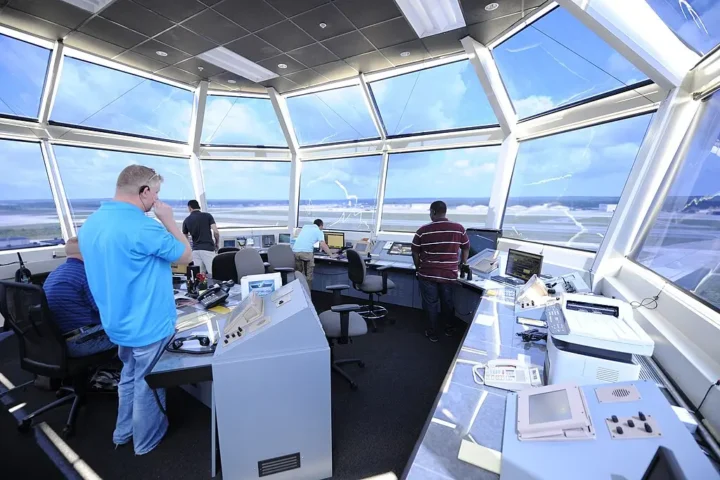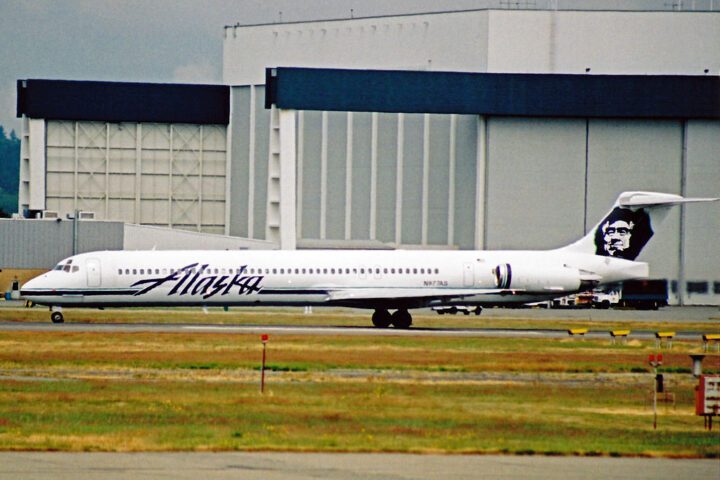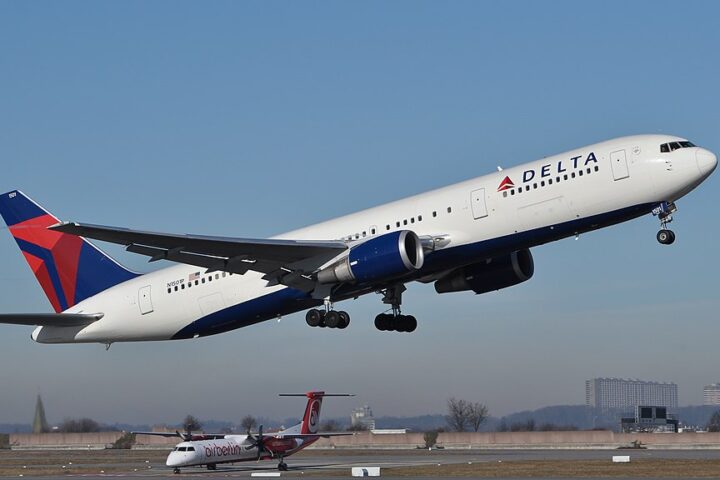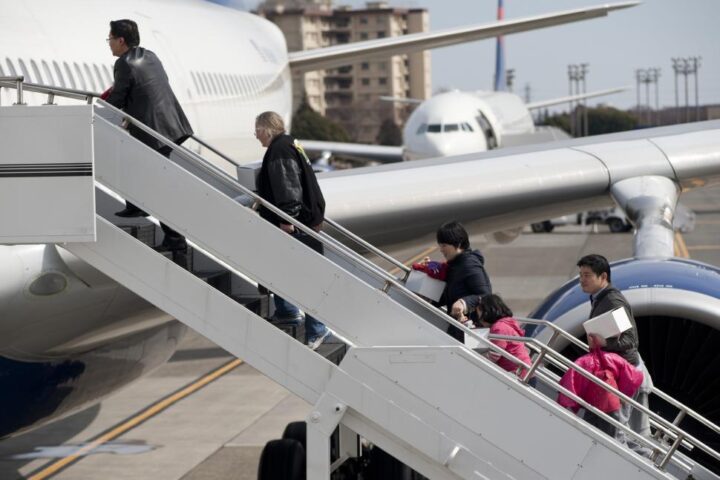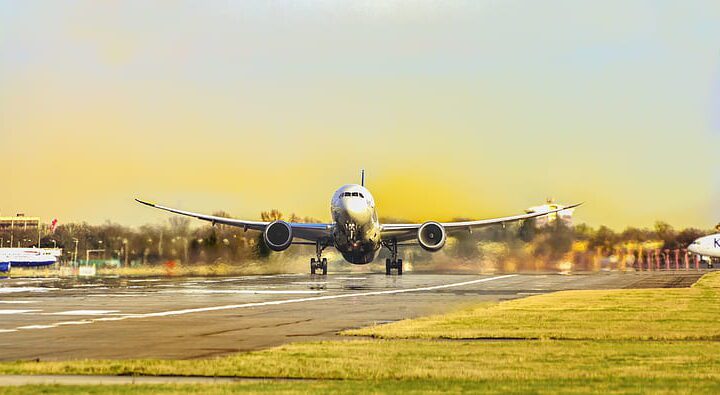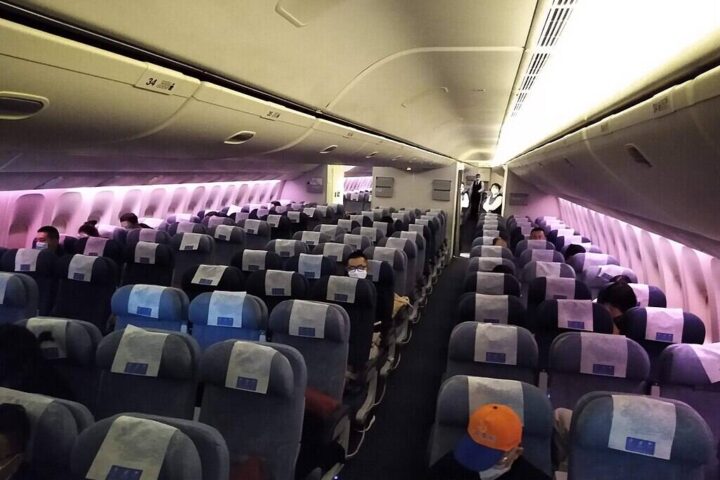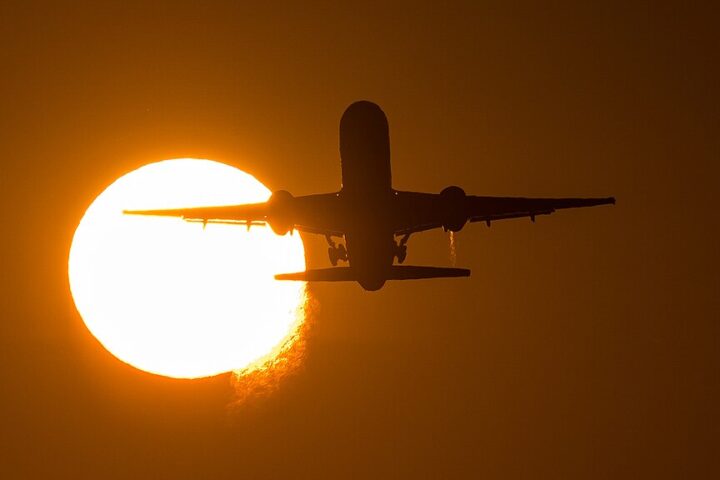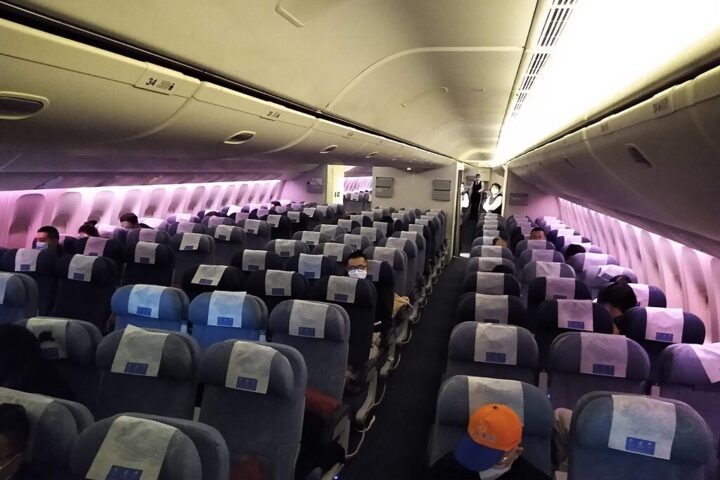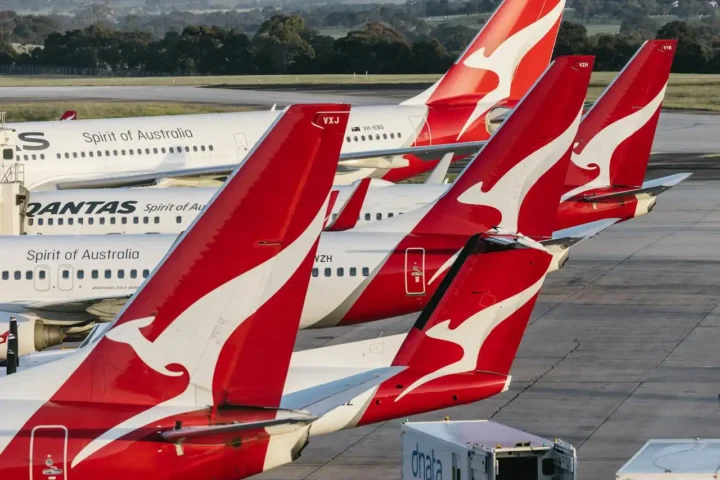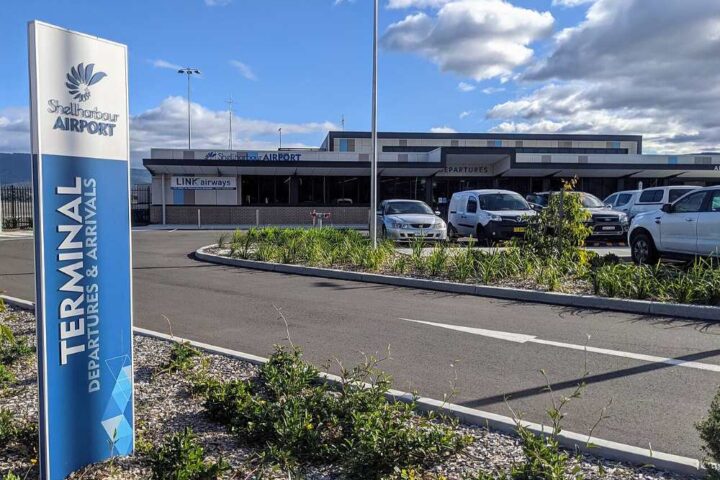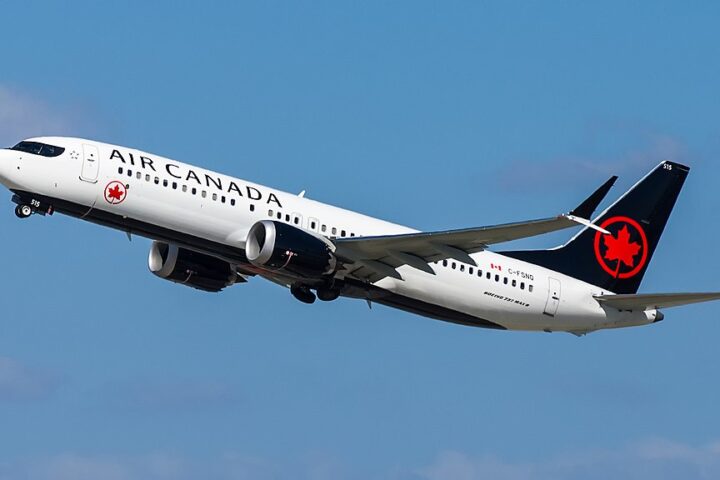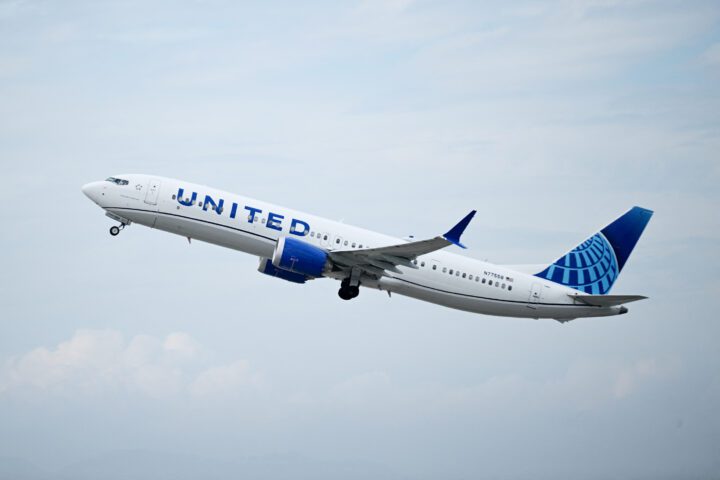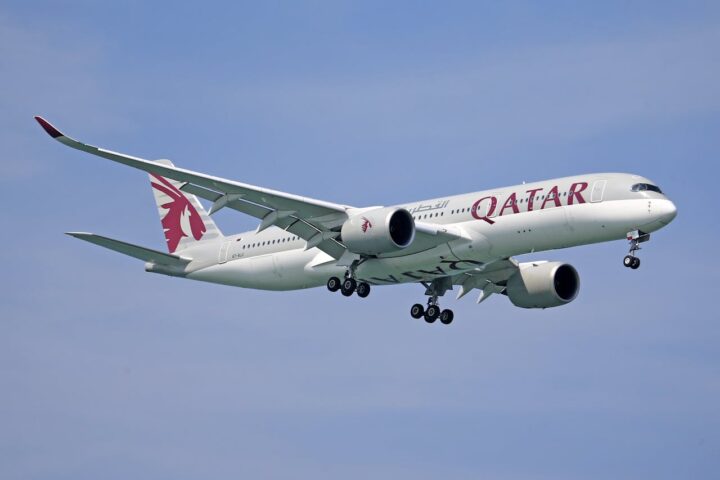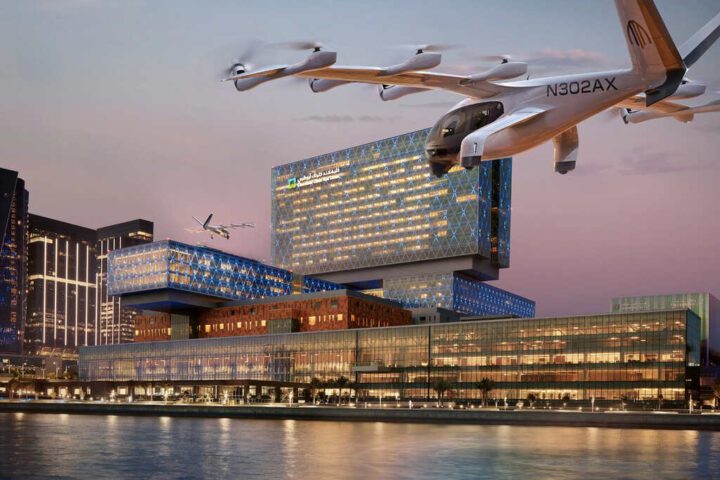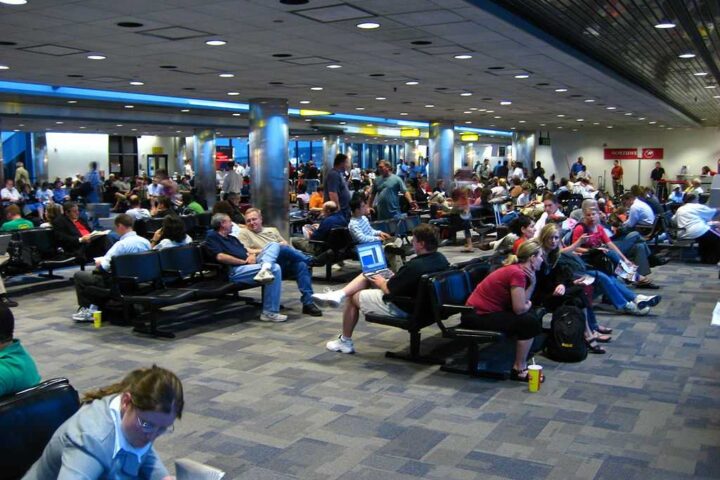Michael O’Leary, Ryanair’s chief executive, has warned that about 100,000 passengers could see their flights disrupted next week due to a planned strike by French air traffic controllers.
The SNCTA, France’s main air traffic control union, will walk out for 72 hours from Tuesday, October 7 until the morning of Friday, October 10. The strike is over disputes about pay and working conditions.
“On the first two days of the strikes, Ryanair is expecting to cancel about 600 flights each day,” O’Leary told Money. He estimates this disruption will cost his airline around £20 million.
While flights to and from France will obviously be affected, the biggest impact will be on flights that simply pass through French airspace to reach other destinations. These “overflights” include popular routes to Spain, Italy, Greece, and Portugal.
“That’s about 100,000 passengers who will have their flights cancelled needlessly next Wednesday and Thursday,” O’Leary said. “On any given day, we operate about 3,500 flights and about 900 of those flights cross over French airspace.”
More Posts
“The UK is the country whose flights get cancelled most because of the geographic proximity to France,” O’Leary added. Flights from the UK to destinations like Crete, Palma de Mallorca, and Barcelona normally spend about an hour flying over France.
The Ryanair boss is calling for overflights to be protected during strike action. He argues that Eurocontrol, the organization that manages European air traffic, could step in to keep flights operating through French airspace even during strikes.
“It wouldn’t stop the French striking, they have the right to strike and we accept that, but they should be cancelling local French flights, not flights from the UK to Spain or from Italy to Ireland,” O’Leary said.
He added: “We bloody well demand that our overflights are protected. If British citizens today going to Italy, or Spanish visitors wanting to come to London, they should not have their flights disrupted or cancelled.”
O’Leary urged affected passengers to complain to transport ministers and the European Commission through Ryanair’s dedicated website.
The UK’s Department for Transport responded: “Airspace is sovereign, and it is for each state to decide how best to manage their own. We know strikes can cause disruption for passengers and airlines, and airports have robust resilience plans in place to minimise their impact.”
Other major airlines including easyJet, British Airways, Vueling, and Lufthansa are also likely to face disruptions. EasyJet told Money it was still waiting for information from authorities to understand the full impact.
Airlines typically don’t announce cancellations until the day before each strike day. This is because French controllers declare their availability just two days before each strike day, and the French civil aviation authority (DGAC) only announces required cancellation levels the afternoon before.
Previous French air traffic control strikes have caused significant chaos. A two-day strike in July resulted in nearly 3,000 flight cancellations and delays averaging 41 minutes for one in nine flights that did operate. That disruption cost the aviation industry about €120 million (£104 million).
For passengers traveling between October 7-10, experts recommend:
- Checking your flight status regularly on your airline’s app or website
- Being prepared for last-minute cancellations
- Keeping receipts for any expenses if your flight is cancelled, as airlines must provide hotels and meals as appropriate
- Being aware that disruption may continue even after the strike ends due to misplaced aircraft and crew
